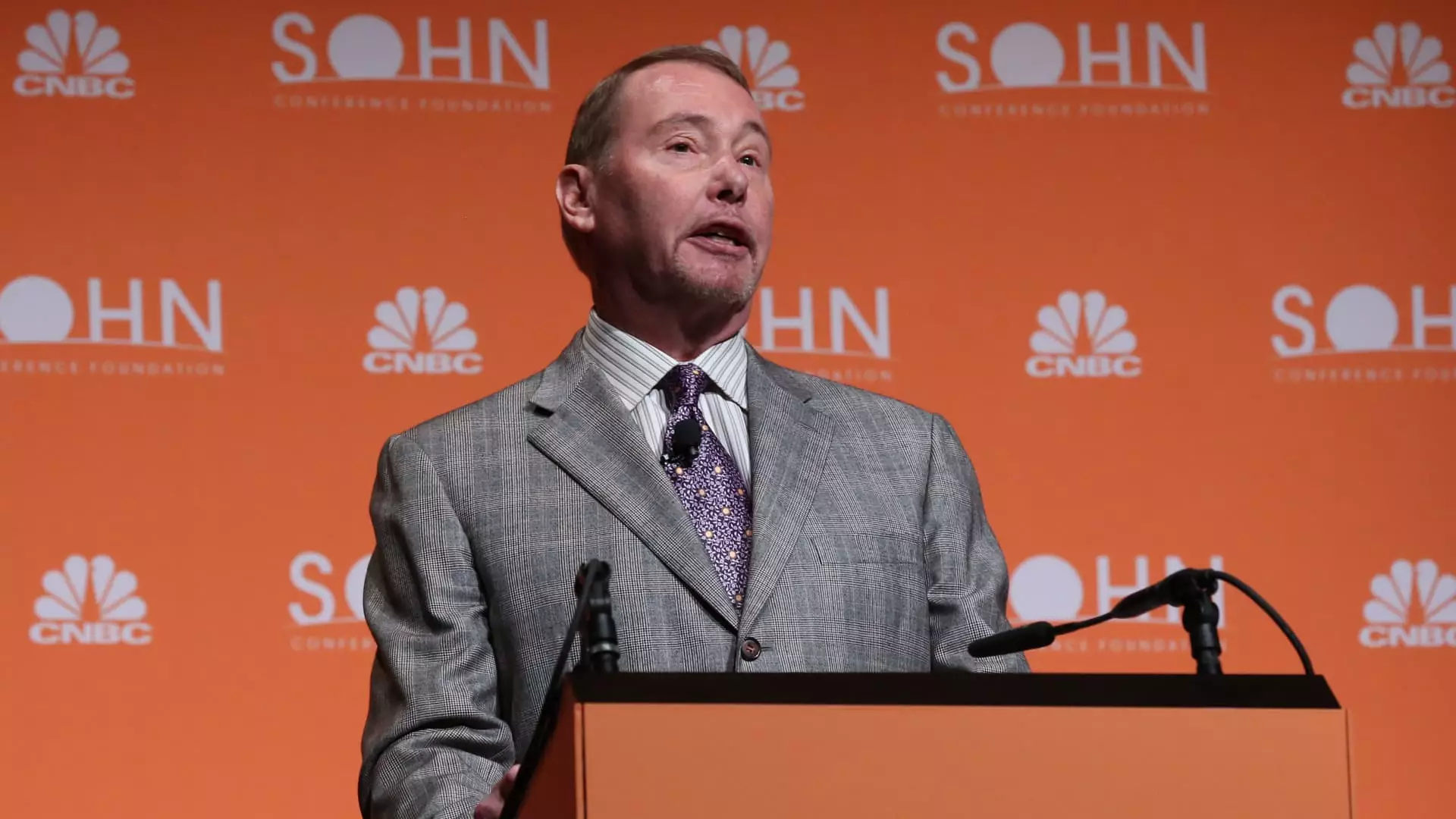The potential shift in congressional power, particularly if the Republicans secure control of the House, may lead to profound changes in the U.S. economic environment. Legendary investor Jeffrey Gundlach recently outlined his views on how this political landscape could influence fiscal policy and the broader financial framework. With Gundlach at the helm of DoubleLine Capital, a firm overseeing more than $96 billion, his insights carry weight in assessing the future of interest rates and government spending.
Given the current fiscal scenario, Gundlach highlighted a critical concern: the U.S. is grappling with a staggering budget deficit exceeding $1.8 trillion. Much of this debt stems from financing costs associated with the national debt, which stands at a colossal $36 trillion. Gundlach’s skepticism surrounding fiscal responsibility is underscored by the prospect of increased government spending if a Republican trifecta comes to pass, providing President Trump with ample opportunity to enact policies that could lead to greater fiscal strain.
Should the Republicans maintain dominance, the expectation is that the government will engage in more robust spending initiatives. This policy direction would likely necessitate additional borrowing, primarily through Treasury issuances, ultimately exerting upward pressure on interest rates—especially at the long end of the yield curve. Gundlach’s comments reflect a deep-seated fear among investors that the repercussions of government loans could substantially alter the investment landscape and economic forecasts.
Amidst the prospects of increased government spending and potential tax cuts, the Federal Reserve’s actions will be pivotal. With recent rate cuts already in the rearview mirror and more anticipated in the coming months, the central bank finds itself in a precarious position. As Gundlach noted, the dynamics of inflation and borrowing costs will dictate how the Federal Reserve navigates this complex scenario, particularly in response to soaring debt levels and changing fiscal policies.
Moreover, while Gundlach acknowledges the risks associated with heightened government debt, he presents a somewhat optimistic viewpoint regarding recession fears. The influence of the Trump administration’s agenda may reduce short-term recession probabilities, given its emphasis on growth-oriented policies and the likelihood of tax reductions. This insight introduces an intriguing layer to the discussion: while increased spending could exacerbate long-term fiscal concerns, it might simultaneously spur economic growth in the immediate term.
Gundlach’s analysis aligns with a broader apprehension surrounding the delicate interplay between fiscal policy and interest rates. As these political dynamics evolve, stakeholders in the financial sector must brace for potential shifts in bond yields and borrowing costs. The upcoming congressional outcomes could have lasting ramifications, altering both the national debt trajectory and the landscape of investment opportunities. Investors and policymakers alike need to remain vigilant as the implications of these changes unfold, shaping the U.S. economy for years to come. The confluence of increased spending, potential tax cuts, and an evolving Federal Reserve strategy will certainly set the stage for a critical period of economic discourse and action.

